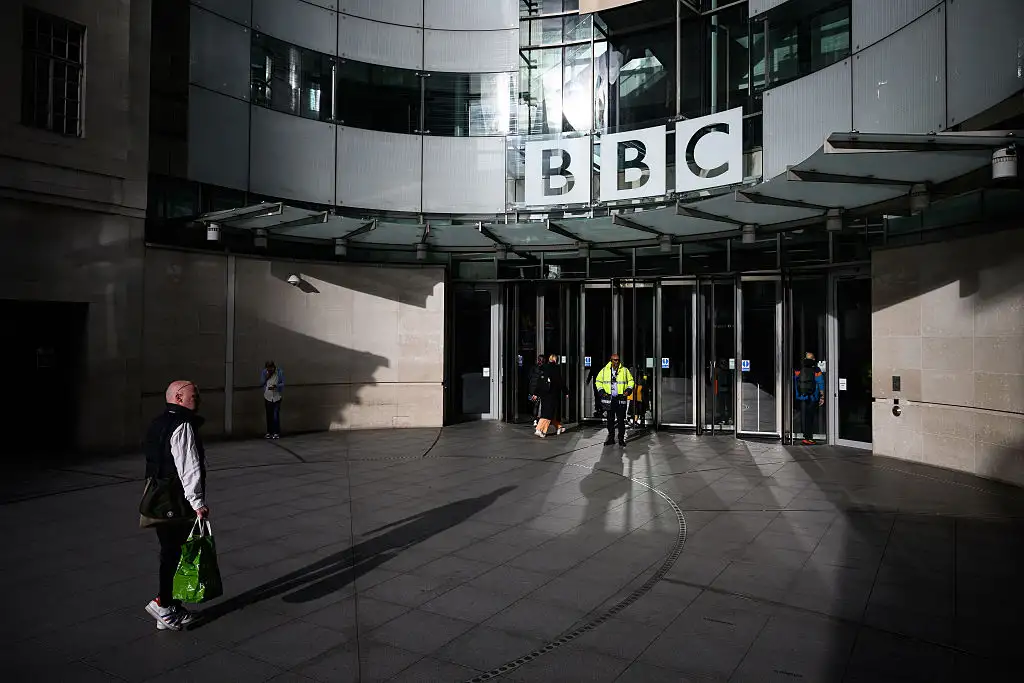Under the BBC’s appeals system, complaints rejected at the first stage can be escalated to the Editorial Complaints Unit (ECU), the corporation’s internal regulatory body. For BBC Arabic, part of the World Service, the ECU’s ruling is final; Ofcom does not intervene.
Camera appealed decisions on 31 occasions. Twenty-two of those appeals have been rejected by the ECU, a further nine await an outcome. Not a single appeal submitted to the ECU by Camera has so far been upheld.
One rejected appeal asked the corporation to reconsider a story that referred to dead Hamas fighters without mentioning their affiliation to the terror group.
Another highlighted a profile of slain Hamas commander Mohammed Deif, which only referred to “accusations” that the terror leader had killed civilians.
The blanket rejection has sparked outrage across the political spectrum.
Leader of the Opposition Kemi Badenoch said “the blind eye turned to the antisemitism on BBC Arabic is heinous”, adding that the channel had to be reformed. “If the BBC is to regain trust after this crisis, its commitment to impartiality cannot stop at Britain’s borders,” she said.
Damien Egan, Labour MP and vice-chair of Labour Friends of Israel, blasted the “blanket dismissals” of the appeals as “evidence of deep, institutional failings and a culture of denial. “The BBC must ensure that its Arabic coverage reflects the high standards and isn’t a channel more interested in confirming prejudices than reporting the facts.”
Responding to the story, Reform MP Richard Tice said the Arabic-language service “has serious questions to answer [and] must prove it is not just a pro-Hamas mouthpiece”.
Crossbench Peer Baroness Ruth Deech said: “Every complainant, not just Jewish viewers, has been incensed by the delays, the total defensiveness of the editors, and failing to uphold procedural natural justice.”
She called for “an outside expert ombudsman” to handle complaints about the Arabic service, which she branded a “swamp of antisemitism and Israel hatred”.
One story over which the ECU rejected an appeal concerned a July 2024 report about Gaza encampments at UK universities. The story featured six pro-Palestinian protesters, but not a single Jewish student. The BBC initially dismissed the complaint, claiming “the piece accurately reflected the purpose it was written for”. However, the BBC recognised that fears about rising antisemitism on campus “might have been better heard more directly from Jewish students and representative groups”.
The ECU rejected Camera’s appeal claiming that the piece upheld the impartiality principle because a sufficient range of views were in fact present.
Another complaint focused on a May 2024 BBC Arabic interview with a West Bank mother, Ameena Ghannam, mourning four sons. The piece said they were killed in an “Israeli operation,” but omitted the fact that they were Hamas fighters. Footage unearthed by Camera showed the bodies of the men wrapped in Hamas flags and wearing the group’s bandanas. Hamas also confirmed the affiliation of the sons with the terror group, revealing that two of them were killed in “confrontations” with Israeli forces. The BBC rejected Camera’s complaint, calling the men’s affiliation with Hamas a “side detail” and claiming that flag-draping was “common practice” in the West Bank. It added that the mother denied her sons were Hamas fighters.
On appeal, the ECU upheld that stance, claiming that links with Hamas were not central to the story, and that Camera failed to provide “indisputable proof” of affiliation with the terror group.
Camera also challenged a BBC Arabic profile of Hamas mastermind Mohammed Deif, killed in an Israeli strike in July 2024. The piece noted he had orchestrated the kidnapping of “soldiers” but only referred to “accusations” that he killed civilians. After the BBC rejected Camera’s complaint, the ECU dismissed the watchdog’s appeal, ruling there was no expectation that the short profile video would “go into detail about all aspects of his activities.”
In other rulings, the ECU said it was “not directly relevant” to mention Hamas’s founding charter calling for Israel’s eradication in articles explaining the group’s ideology and the October 7 attack.
Commenting on the story, a Camera spokesperson said: “While claiming to ‘assess complaints independently,’ the BBC’s Executive Complaints Unit has failed to uphold even a single one about BBC Arabic’s output over more than two years of war – revealing that, in practice, it serves not as an impartial watchdog but rather as a rubber stamp for the service’s misinformation and bias.
“Many ECU rulings tell us we are merely ‘entitled’ to hold a different view, as though clear, repeated, and documented evidence of bias is just opinion.
“Both BBC Arabic editors and the ECU have repeatedly dismissed our concerns, sometimes gaslighting us and other times throwing up arbitrary and even Kafkaesque bureaucratic hurdles when complaints were underway,” Camera claimed.
A BBC spokesperson said: “BBC News Arabic strives for the highest standards of journalism. Whenever mistakes are made or clarifications are needed, we take action to ensure clarity and accuracy for our audiences. The ECU works outside of BBC News and assesses complaints independently.”


.jpg) The pro-Palestinian student encampment outside King’s College on May 08, 2024 in Cambridge, England. (Getty Images)[Missing Credit]
The pro-Palestinian student encampment outside King’s College on May 08, 2024 in Cambridge, England. (Getty Images)[Missing Credit]